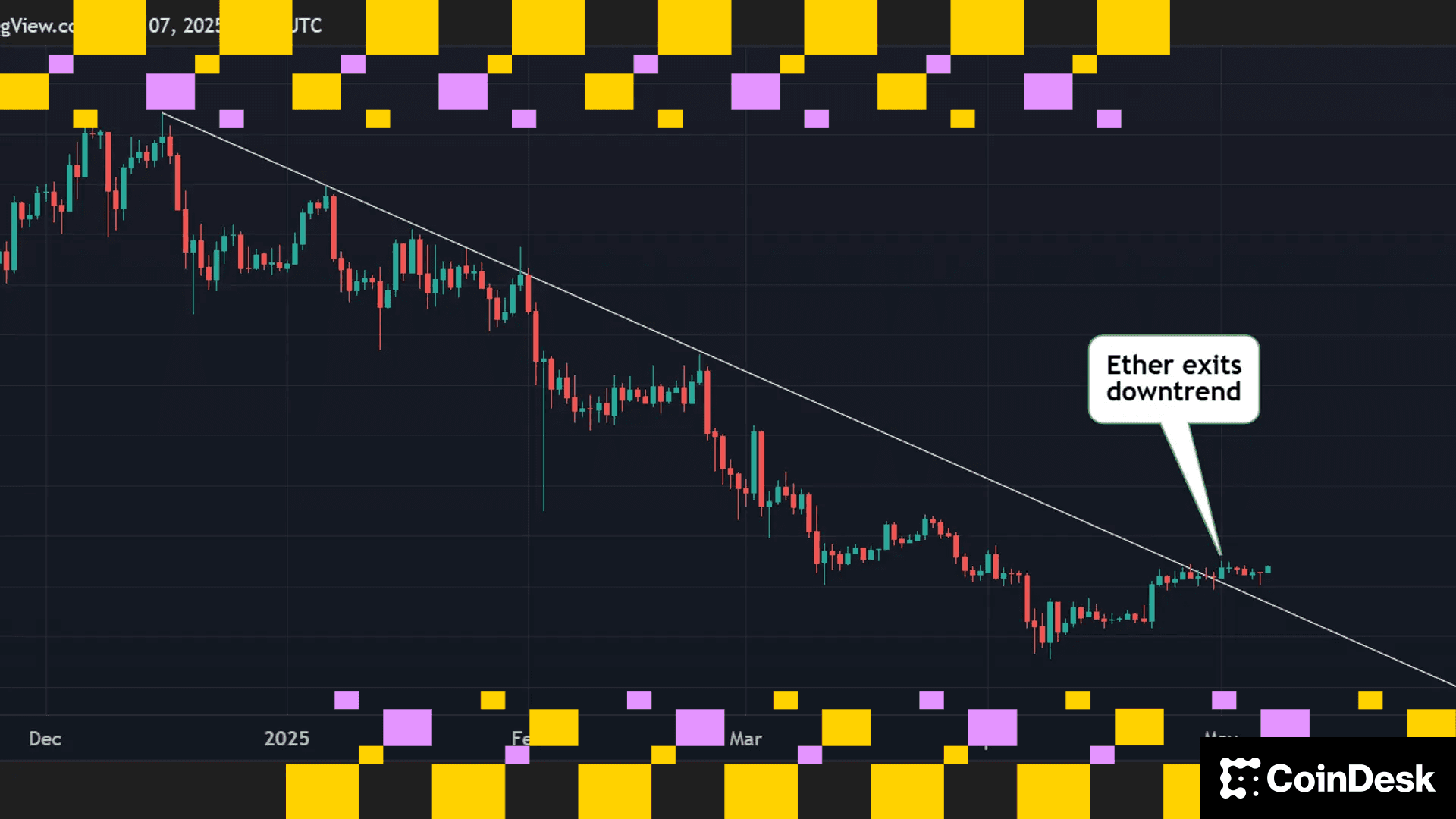Saylor Calls MicroStrategy’s Bitcoin Play ‘Tremendous Success,’ Promises More BTC Buys
The CEO is almost two years into his multibillion-dollar experiment of bitcoin on the balance sheet. According to a new investor letter, his conviction isn’t waning.

MicroStrategy (MSTR) CEO Michael Saylor called his multibillion-dollar
“Adopting bitcoin as our primary treasury reserve asset set us apart from conventional competitors and elevated our brand,” he wrote, calling the nearly two-year-old strategy “complementary” to the company’s decades-old analytics business.
“We will continue to vigorously pursue both strategies,” he said.
MicroStrategy has spent $3.97 billion acquiring 129,218 bitcoins for an average of $30,700 apiece, he wrote. With bitcoin trading nearly $10,000 above that, the trade remains well in the green – though not nearly as much as when BTC was touching $69,000 all-time highs.
Saylor’s acquisition strategy has grown increasingly creative. What began as an experiment with excess cash amassed during the coronavirus lockdown has yielded share sales, convertible note offerings and crypto-collateralized loans – all to buy more bitcoin. MicroStrategy is Wall Street’s biggest balance-sheet bitcoin bull, Saylor said.
Thursday’s investor letter shed some light on the quirks of corporate bitcoin buying sprees.
For one, Saylor continues to “personally provide” the executive teams’ liability insurance coverage. MicroStrategy ditched its corporate plan last June because the “novelty” of its bitcoin buying strategy drove rates too high.
Executives’ bonus payouts are influenced in part by their contributions to the bitcoin strategy, the documents said. And MicroStrategy’s four outside directors continue to receive their boardroom fees in bitcoin instead of cash, a rarity in corporate America.
All this at a company with an undisputed king. Michael Saylor holds 68.1% “total voting power” at the company he founded in late 1989. He is one of Wall Street’s longest-serving executives.
More For You
Exchange Review - March 2025

CoinDesk Data's monthly Exchange Review captures the key developments within the cryptocurrency exchange market. The report includes analyses that relate to exchange volumes, crypto derivatives trading, market segmentation by fees, fiat trading, and more.
What to know:
Trading activity softened in March as market uncertainty grew amid escalating tariff tensions between the U.S. and global trading partners. Centralized exchanges recorded their lowest combined trading volume since October, declining 6.24% to $6.79tn. This marked the third consecutive monthly decline across both market segments, with spot trading volume falling 14.1% to $1.98tn and derivatives trading slipping 2.56% to $4.81tn.
- Trading Volumes Decline for Third Consecutive Month: Combined spot and derivatives trading volume on centralized exchanges fell by 6.24% to $6.79tn in March 2025, reaching the lowest level since October. Both spot and derivatives markets recorded their third consecutive monthly decline, falling 14.1% and 2.56% to $1.98tn and $4.81tn respectively.
- Institutional Crypto Trading Volume on CME Falls 23.5%: In March, total derivatives trading volume on the CME exchange fell by 23.5% to $175bn, the lowest monthly volume since October 2024. CME's market share among derivatives exchanges dropped from 4.63% to 3.64%, suggesting declining institutional interest amid current macroeconomic conditions.
- Bybit Spot Market Share Slides in March: Spot trading volume on Bybit fell by 52.1% to $81.1bn in March, coinciding with decreased trading activity following the hack of the exchange's cold wallets in February. Bybit's spot market share dropped from 7.35% to 4.10%, its lowest since July 2023.
More For You











